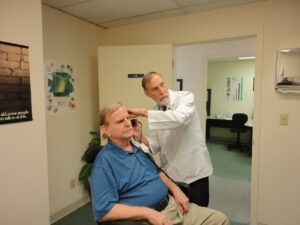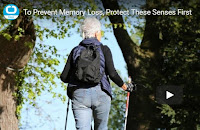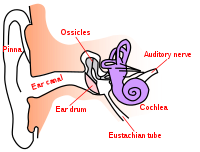What the Study Found
A major study published in JAMA Network Open followed adults over many years and discovered that even slight hearing loss was associated with smaller overall brain volume and more white-matter changes. These changes were linked to declines in thinking skills such as attention, planning, and problem-solving.
Researchers also found that people with hearing loss had a significantly higher risk of developing dementia over time. The risk was particularly strong in individuals who carry the APOE ε4 gene, but remained elevated even after adjusting for age, education, and vascular health.
Most importantly, the study noted that people who used hearing aids had better long-term cognitive outcomes and lower dementia risk than those with untreated hearing loss.
Why This Matters
Hearing loss is far more than an inconvenience. When the brain struggles to process sound, it diverts extra energy away from memory, concentration, and other important cognitive tasks. Over years, this added strain may contribute to structural brain changes that increase dementia risk.
The best news: hearing loss is one of the few modifiable dementia-risk factors. Acting early makes a meaningful difference.
5 Ways to Stop Brain Loss from Hearing Loss
1. Get a Baseline Hearing Test by Your 40s
Even mild, unnoticed hearing loss can place strain on the brain. A baseline hearing test — and follow-ups every 2–3 years — helps catch early decline while it’s still easy to treat.
2. Treat Hearing Loss Early, Not “When It Gets Bad”
Many people wait 7–10 years before seeking help. Early treatment may protect brain volume, support healthy thinking skills, and slow long-term cognitive changes.
3. If Recommended, Use Hearing Aids Daily
The study shows that hearing-aid users experience better cognitive outcomes than non-users with similar hearing loss. Consistent daily wear is key to supporting long-term brain health.
4. Protect Your Ears from Loud Noise
Noise exposure adds cumulative damage. Lower headphone volume, take breaks in noisy environments, and use ear protection at concerts, weddings, or loud workplaces.
5. If You’re a Caregiver, Monitor Hearing Closely
Older adults may not report gradual hearing loss. Watching for signs — turning up the TV, withdrawing from conversation, missing words — can help you advocate early for treatment.
Bottom Line
Hearing loss isn’t just about hearing — it’s about memory, attention, and lifelong brain health. This new research shows that treating hearing loss early is a practical, powerful way to reduce dementia risk. Simple steps today can protect the brain for years to come.











